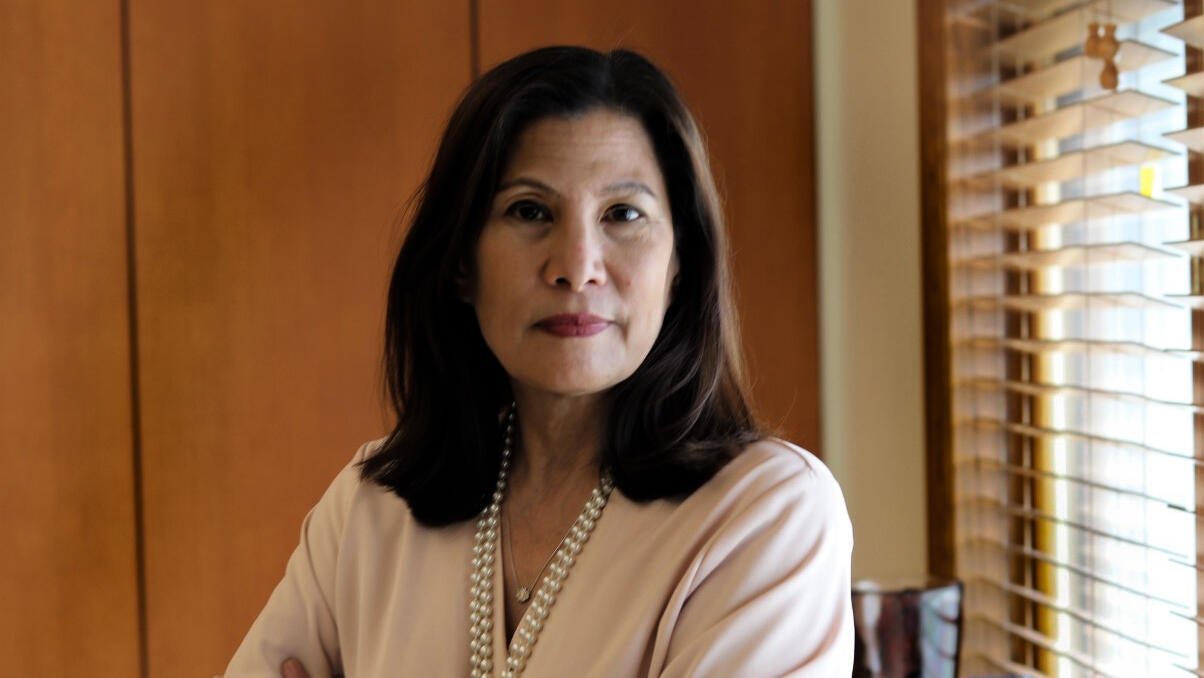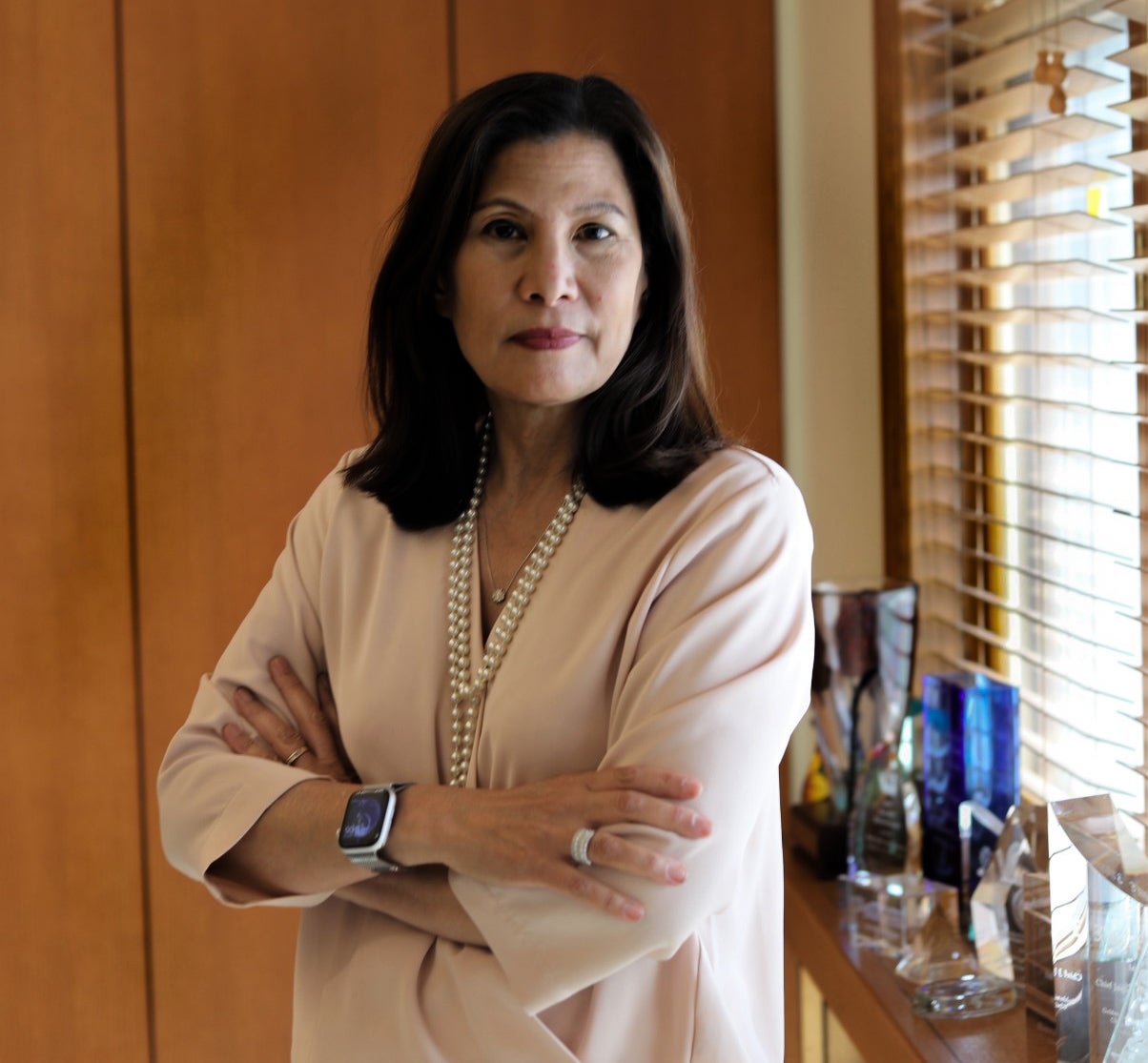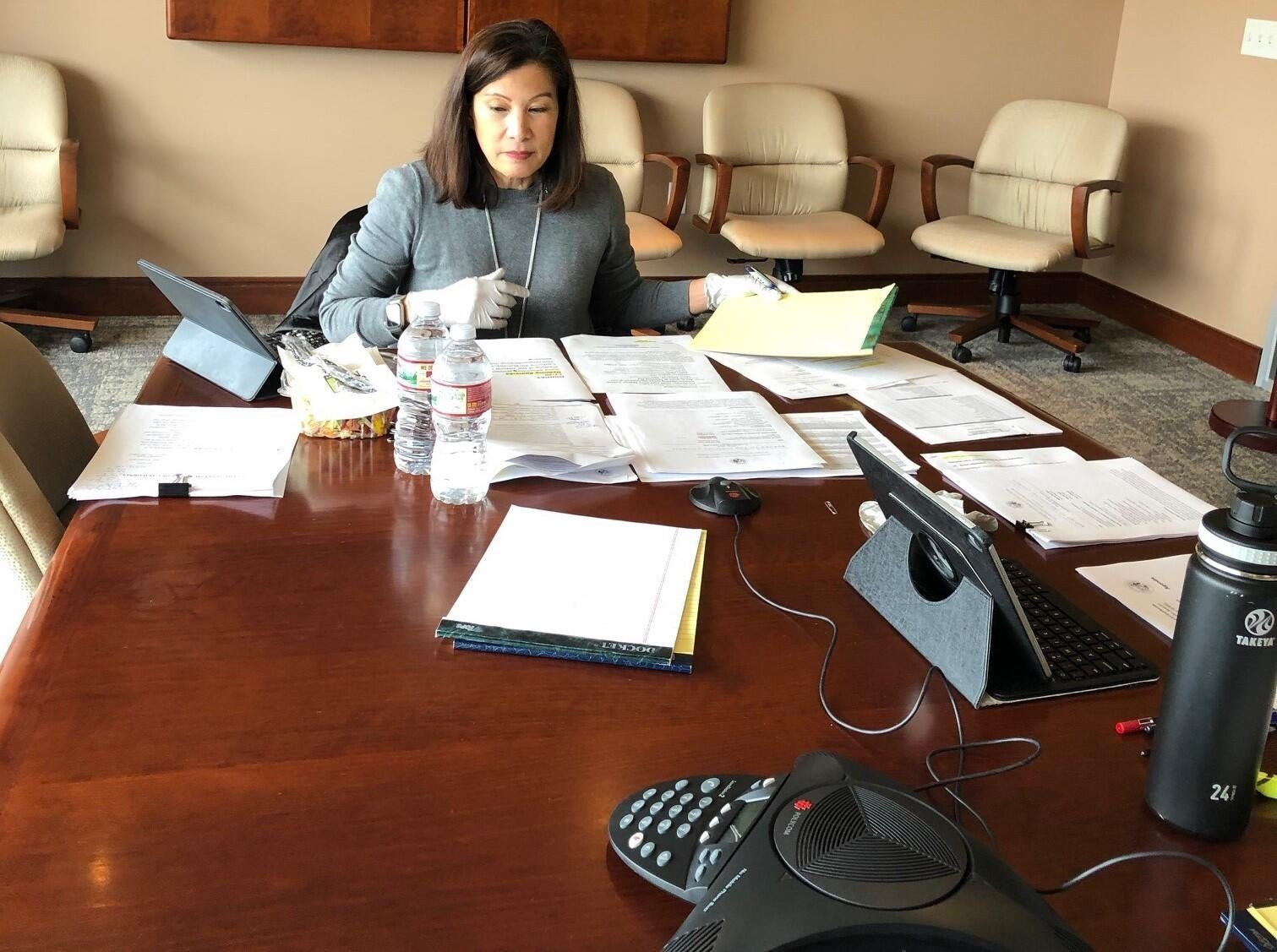
California Chief Justice: "No need and no right will be overlooked"
The Judicial Council of California on April 6 voted to approve 11 temporary emergency measures that aim to safely reduce the jail population, suspend evictions and foreclosures, and more during the COVID-19 health emergency.
Below are the opening remarks from California Chief Justice Tani G. Cantil-Sakauye, who chairs the council, at the meeting:
"This is our second special meeting in the last ten days. These two meetings were convened to address critical access to justice issues following Governor Newsom’s proclamation of a state of emergency on March 4, and then his executive order on March 27 to us to temporarily 'enhance the authority of California’s judicial branch to take emergency action in the face of the COVID-19 crisis.'
We have also issued a circulating order in relation to appellate rules, and advisories clarifying previous orders on emergency relief measures for courts. And we will continue to use all of these options—Judicial Council meetings, circulating orders, orders from me as Chief Justice or as Chair of the Council and possible advisories when necessary, to expedite the branch’s response to the COVID-19 pandemic and to protect access to justice.
Thank you once again to our volunteer council members from the courts, the Bar, and the Legislature, for once again making yourselves available on short notice to address all of these number one access to justice issues and concerns.
As I said at last week’s meeting, no need and no right will be overlooked, and as Judicial Council Administrative Director Martin Hoshino noted at the meeting, “Everything is number one on our list, but we have to deal with them in some order.”
To date, we have addressed the need to keep the public, court users, and staff safe by suspending jury trials and supporting social distancing and shelter-in-place requirements.
I have issued emergency orders under Government Code section 68115 to support and protect local trial and appellate court operations, judicial officers, court staff, and courts users: litigants, the accused, justice system partners as well as the public.
At our March 28 special meeting we again acted to protect the health and wellbeing of all of our constituents by approving temporary—I say again, temporary, with a capital T—emergency measures to continue essential court services.
And yes, we’ve struggled, as evidenced by our teleconference issues at that same meeting—with many of the same issues private businesses and public institutions have faced nationwide during this unprecedented crisis.
Cognizant of our oath to both Constitutions, jurors and lawyers have struggled and continue to struggle to balance the health and safety needs of their local community with the civil and constitutional rights and liberties of individuals and groups from our communities.
Today as part of our ongoing collective effort to flatten the curve, stem the spread of the virus, and assume the responsibility delegated to us by Governor Newsom “with utmost care and judiciousness” we seek to address the issues of the faces behind the cases, and those that support them in seeking relief, resolving disputes, or having their voice heard by the courts. All are “number one” on our list.
We have listened to and read the input, comments, and suggestions from our justice system partners, the public, the courts, and the media.
Our staff have worked with Council leadership to craft temporary rules that will be responsive to the needs and the rights that we all swore an oath to protect and defend. This has been a collaborative effort, perhaps not under our normal procedures, but still effective in these daily, changing, uncertain, fluid times. In fact, all of us are endeavoring to balance justice against this overwhelming contagion in order to minimize illness and death.
California courts' new coronavirus rules set most bail at $0, expand remote appearances & halt evictions.
— Libby Denkmann (@libdenk) April 7, 2020
Chief Justice Tani Cantil-Sakauye says it’s an effort to “balance justice against this overwhelming contagion...to minimize illness & death" https://t.co/nWEqzWqcCX
I’ve heard examples again and again of local courts working successfully with local justice system partners—getting together virtually, discussing issues, working out effective local solutions that could work in other jurisdictions.
We are judges, lawyers and legal staff—we make important decisions for a living. And we do so still with the best information at hand, using information from our justice partners, the media and the public, and in this case making swift but meaningful, sobering, deliberative decisions to try our best to preserve rights and ultimately preserve lives.
We are at this point truly with no guidance in history, law or precedent. To say that there is no playbook is a gross understatement of the situation.
CA Chief Justice Tani Cantil-Sakauye: "To say there is no playbook is a gross understatement of the situation."
— Capital Accounts (@CapitalAccounts) April 6, 2020
But we are working with legal aid, advocacy groups, public defenders, district attorneys, law enforcement, unions, attorneys, court reporters and interpreters to preserve the rule of law and protect the rights of victims, the accused, litigants, families, children, and all who come to us for justice.
We have to share these best practices. We must be collaborative and cooperative. We must be justice partners in finding solutions during these uncommon times. Because it is in all of our best interests to do so. Because we all still have essential jobs to do. And because it is our public duty. And unlike the vast majority of the public, we all swore oaths to do so.
The Judicial Branch is doing its part by contributing to solutions that require government and the public we serve to work together, to share a collective and individual responsibility, and to do the right thing.
We may be altering court procedures by temporary rules or extending time for some, implementing social distancing and density controls, and supporting shelter-in-place and other public health and safety orders.
And by our temporary orders and procedures, we trying to balance access to justice with a safe court environment for others —including first responders: police, fire, rescue and ambulance crews; healthcare workers: nurses, doctors, all hospital staff and health departments and research scientists—those working in and with our local communities to stop this pandemic and save lives. I thank you all for your service to our communities and our state."



